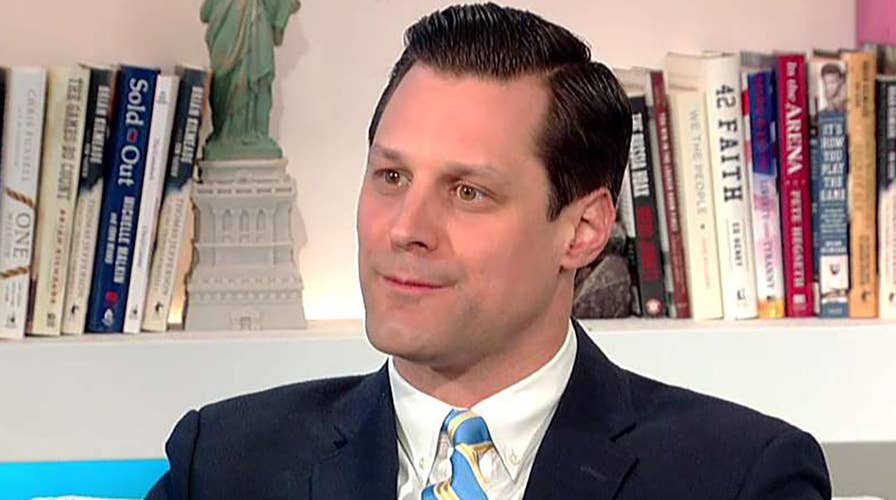Post-college prep: Interview dos and don'ts
It's the little things that matter when it comes to interviewing for a job.
College students can get a lot done in our digital age without ever having to interact face-to-face with another human being. But if this year's graduates want to land a job, there's no way to avoid sitting across the table from a potential employer. Hiring managers want to know that the person they liked on paper is just as impressive in-person. So show them by nailing your performance before, during, and after the interview.
#1: Think and plan ahead
A great interview begins long before you shake hands with your interviewer. The biggest mistake many young job seekers make is to not think ahead about things like travel time, directions, and weather. Too often they arrive late, get lost along the way, or end-up soaking wet from rain or sweat. That's no way to make a strong first impression.
BRIAN BRENBERG: SIX RESUME DOS AND DON'TS THAT WILL MAKE YOU LOOK GOOD ON PAPER
Thinking ahead can boost your confidence and calm your nerves as you walk into your interview. Map your route to the interview a few days in advance, check the weather and pack accordingly, and leave with plenty of time to spare. When it comes to arriving at interviews, early is on time and on time is late. And don’t forget to pack for little emergencies. Bring a stain stick in case of a coffee mishap, breath mints to stay fresh, and a bottle of water to help with that nervous dry mouth.
#2: Be mindful of body language
All of your preparation has gotten you where you need to be when you need to be there. Now it’s time to impress. The best way to convey trust and competence is through eye contact, so from that very first handshake to the very last handshake and everywhere in between, give your eyes to your interviewer. Before you ever get a chance to say you’re excited for this job, you’ll show it through your body language. Bring energy to your delivery by smiling and sitting slightly forward in your seat.
#3: Show, don’t Tell
When it comes to the conversation, interview questions can take all different forms, but in the end, they generally boil down to three categories: Why do you want to work here? What have you done? What sets you apart from the rest of the pack? The mistake most people make when answering these questions is to “tell,” not “show.”
Anyone can claim to be a hard worker – all they have to do is say the words. That’s called “telling.” A seasoned interviewer won’t be persuaded by someone claiming they’re a hard worker, because they know talk is cheap. But an interviewer is more likely to be persuaded if you “show” them you’re a hard worker by giving them examples of times when you went the extra mile for a customer or pulled a late night to finish a project on time. You’re not telling them who you are, you’re showing them and giving them a chance to draw their own conclusions.
#4: Ask questions
You’ll spend most of your time in an interview answering questions, but be ready to ask your own, if given the chance. Interviews are about figuring out if you’re a good fit for the job, and that’s a decision for the employer to make and for you to make. Most interviewers want to give you the chance to ask them questions – so be ready! Avoid questions you could answer on your own by reading the company website. Instead, ask about features of the company that might not make headlines: the culture, things that have made others successful in your desired role, and new projects they’re excited about.
Above all, have questions to ask. Intellectual curiosity is important to most employers. By not having a question to ask, you look naïve and apathetic, neither of which are likely to tip the scales in your favor.
#5: Send a thank you note
Once you’ve nailed the face-to-face interview, it’s time for the finishing touch. Thank you notes are a great way to remind an interviewer of what makes you the best candidate for the job. Nothing beats a handwritten note, but emails can be appropriate, too. The key is to not be generic. Thank you notes are not a box to check – they’re a tool you can use to help set you apart from the competition.
CLICK HERE TO GET THE FOX NEWS APP
In your thank you note, remind the interviewer of the things you enjoyed discussing, including the experiences, skills, and interests that make you unique. Personalize it so that as they read, the words conjure an image of their time with you. Check your spelling, be grammatically correct, and get it to your interviewer within a day or two of your interview.
The challenge and intensity of a job interview are what gives you a chance to shine. It’s okay to be nervous because nerves show you’re taking the experience seriously. But you’ll perform best with confidence, and confidence always begins with preparation. Plan ahead to make sure you arrive calm and collected. In the interview, don’t just tell them about yourself, show them why you’re a uniquely good fit. And don’t miss the chance to reinforce what makes you special through a timely and vivid thank you note. If they liked what they saw on paper, they’ll love who they met in person.









































